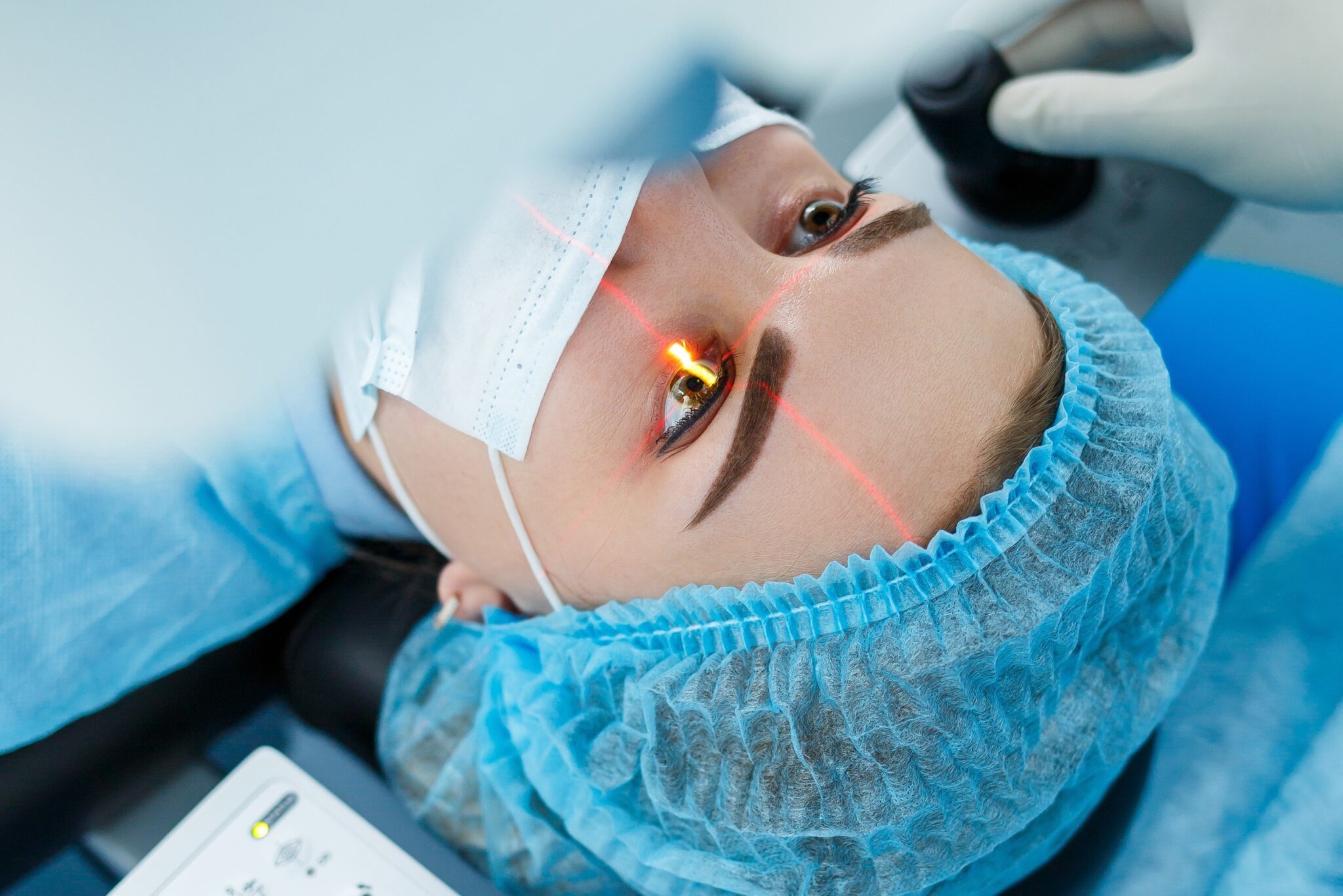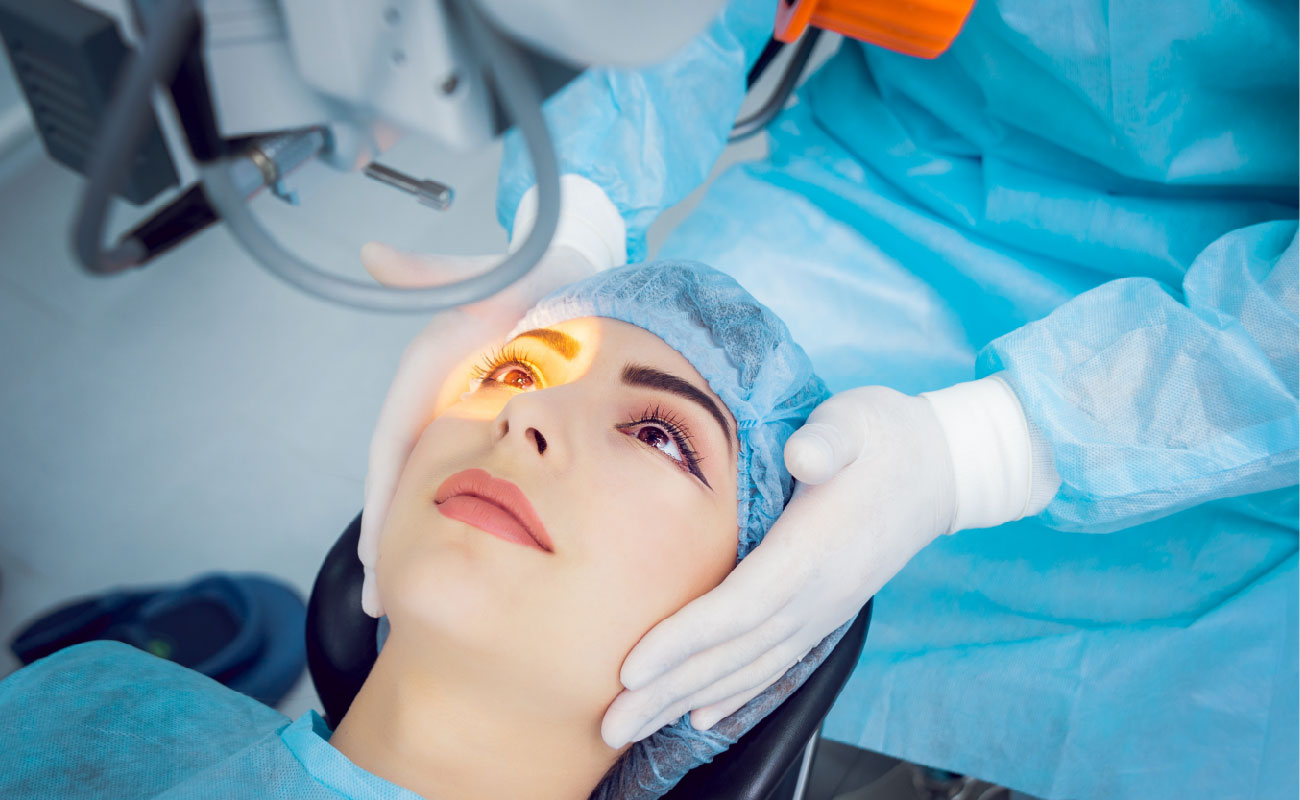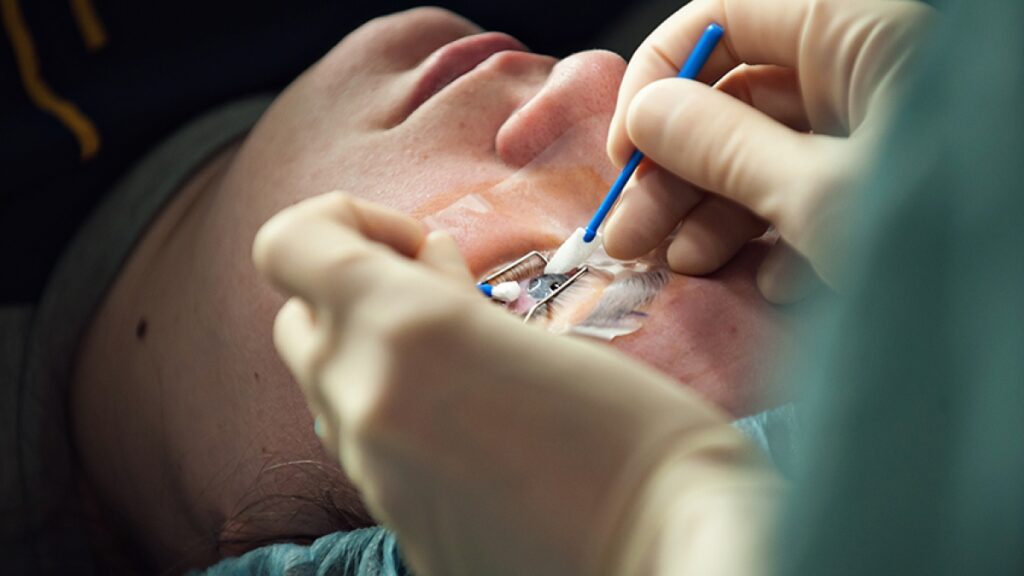Laser eye surgery has become a popular option for those seeking to reduce their dependence on glasses or contact lenses. As the technology and techniques advance, patients are faced with numerous choices when it comes to selecting a clinic for their procedure. In this article, we will delve into the fundamental aspects of laser eye surgery, the characteristics of top-tier clinics, and the overall patient experience, alongside discussing the importance of aftercare and evaluating success rates.
Understanding the fundamentals of laser eye surgery
Before delving into the specifics of what makes a clinic stand out, it is essential to comprehend the fundamentals of Best laser eye surgery. This type of surgery primarily seeks to correct refractive vision problems, such as myopia (nearsightedness), hyperopia (farsightedness), and astigmatism. By doing so, patients can achieve clear vision without relying on corrective lenses.
The science behind laser eye surgery
The technology behind laser eye surgery is built upon scientific principles of optics and vision correction. Typically, laser eye procedures, such as LASIK and PRK, involve reshaping the cornea to allow light rays to focus correctly on the retina. This reshaping is achieved using specialised laser systems, which deliver precise energy to target corneal tissue.
Advancements in technology have significantly improved the efficacy and safety of these procedures over the years. Surgeons now leverage digital mapping to create a detailed topography of a patient’s eye, ensuring a personalised approach to vision correction. Such scientific precision is key to reducing risks and achieving optimal results. Moreover, the introduction of femtosecond lasers has revolutionised the field, allowing for even greater accuracy and quicker recovery times, which has been a game changer for many patients seeking immediate visual improvement.
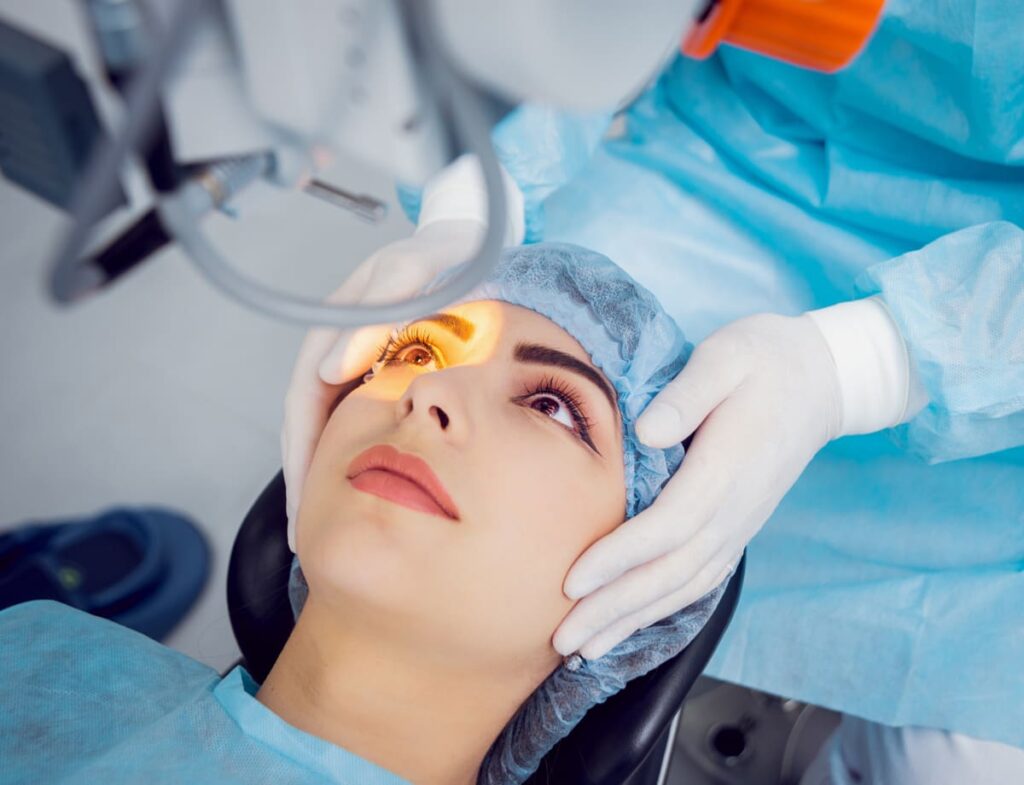
The importance of precision in laser eye surgery
Precision in laser eye surgery cannot be overstated. Every micro-millimetre counts when it comes to reshaping the cornea. Any errors during the procedure can lead to suboptimal results or complications. Therefore, clinics employing advanced technology that ensures precision can be more dependable than those using outdated methods.
This precision also plays a vital role in individual patient outcomes. A successful procedure enhances both the quality of vision and the overall satisfaction of the patient. It is this level of accuracy that separates the best clinics from the rest. Furthermore, the importance of thorough pre-operative assessments cannot be overlooked; these evaluations help identify any underlying conditions that may affect the surgery’s success. By taking the time to understand each patient’s unique eye characteristics, surgeons can tailor their approach, ultimately leading to a more favourable and enduring result.
Key characteristics of top-tier laser eye surgery clinics
When searching for the best laser eye surgery clinics, certain characteristics emerge as indicators of quality and reliability. Understanding these characteristics can help patients make informed decisions about where to receive treatment.
The role of advanced technology
Top-tier clinics often utilise advanced technologies that enhance both the efficacy and safety of laser eye surgical procedures. This includes employing high-definition laser systems, which offer superior accuracy in corneal reshaping. Additionally, clinics may use wavefront technology to customise the treatment plan to an individual’s unique eye characteristics. Read more about accuracy on https://www.ncsu.edu/labwrite/Experimental%20Design/accuracyprecision.htm
Moreover, staff training and continuous education on emerging technologies are essential traits of leading clinics. Ensuring that the surgical team is well-versed in the latest innovations contributes significantly to patient safety and clinical success. Furthermore, many of these clinics invest in state-of-the-art diagnostic equipment, such as optical coherence tomography (OCT) and corneal topography, which allow for comprehensive assessments of the eye’s structure and function. This level of detail not only aids in pre-operative planning but also helps in monitoring the healing process post-surgery, ensuring that any potential issues are addressed promptly.
The significance of experienced surgeons
The expertise of the surgeon is undeniably a critical factor in the success of any laser eye surgery. Experienced surgeons not only possess the technical skills needed for the procedure but also have an in-depth understanding of the nuances associated with various patient cases.
Patients should look for clinics whose surgeons demonstrate a strong track record, which may include numerous successful surgeries performed and ongoing participation in continued medical education. An experienced surgeon can provide tailored recommendations and navigate any complications that may arise during the procedure. Additionally, many top-tier clinics encourage a collaborative approach, where surgeons work closely with optometrists and other specialists to ensure a holistic view of the patient’s eye health. This multidisciplinary strategy not only enhances the quality of care but also fosters an environment where patients feel supported throughout their surgical journey, from initial consultation to post-operative follow-up.
The patient experience at leading laser eye surgery clinics
An important aspect of choosing a clinic for laser eye surgery is the overall patient experience. This encompasses everything from the initial consultation to the surgery itself and the follow-up care provided.
The consultation process
The consultation process serves as a foundation for establishing trust between the patient and the clinic. During this stage, patients should feel comfortable discussing their vision problems and expectations. A thorough examination of the patient’s eye health is essential; this may include various tests and imaging to evaluate the suitability for surgery.
Leading clinics take the time to educate patients on the procedures available, outlining the risks and benefits of each. This transparency allows patients to make well-informed choices regarding their treatment options. Furthermore, many clinics offer the opportunity for patients to meet with previous patients or read testimonials, providing additional reassurance and insight into the experiences of others. This peer interaction can be invaluable, as it helps to demystify the process and alleviates any lingering apprehensions about the surgery. to learn more about risks click here.
The surgery and recovery experience
On the day of surgery, the patient experience should be supportive and reassuring. Clinics that are attentive to the emotional and physical needs of their patients contribute significantly to a positive surgical experience. This can include pre-surgery relaxation techniques and ensuring that all of the patient’s questions are answered before proceeding.
The recovery experience is equally vital. High-quality clinics typically instruct patients on post-operative care and provide accessible support for any concerns during the healing process. This attention to detail can differentiate an excellent recovery experience from one that is fraught with stress and ambiguity. Additionally, many clinics now offer follow-up appointments that are not only routine check-ups but also opportunities for patients to discuss their recovery journey in a supportive environment. This ongoing engagement can foster a sense of community and reassurance, making the transition to improved vision a more comfortable and positive experience overall. Moreover, the use of technology, such as telehealth consultations, allows patients to easily connect with their healthcare providers, ensuring that any questions or concerns can be addressed promptly, further enhancing the overall experience.
The importance of aftercare in laser eye surgery
Aftercare is a critical component of laser eye surgery and can impact the long-term success of the procedure. Effective aftercare strategies include regular follow-up appointments and support for managing side effects or complications.
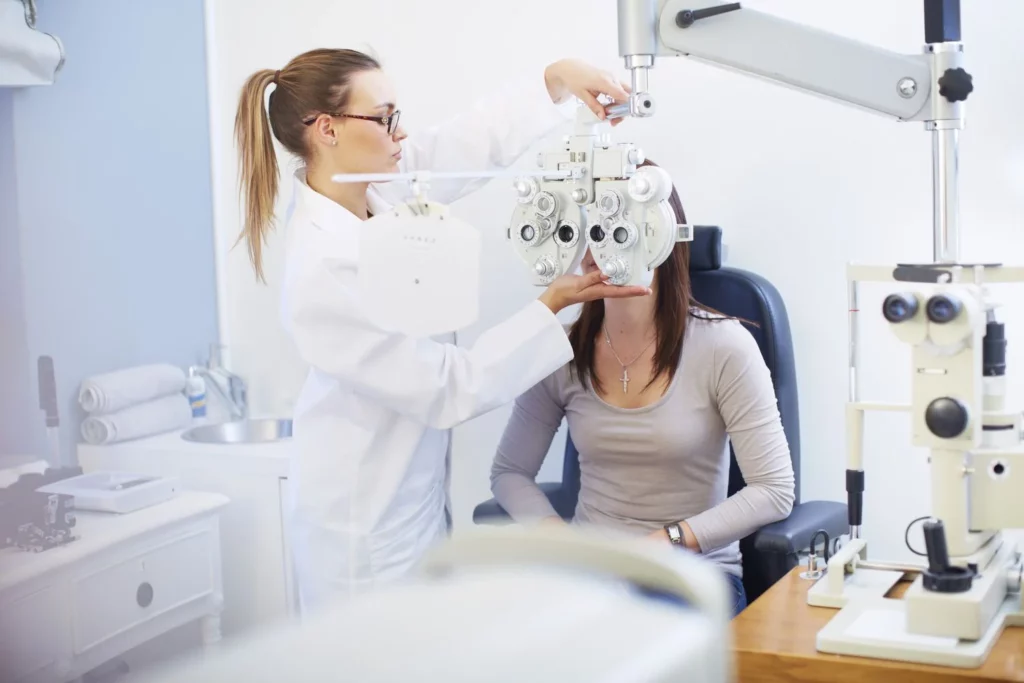
Follow-up appointments and ongoing care
After leaving the clinic, patients should have scheduled follow-up appointments to monitor their healing process. These appointments allow the surgeon to ensure that the eyes are healing properly and to address any potential issues early on. Good clinics offer comprehensive aftercare, actively checking in with patients to confirm their satisfaction and answer any lingering questions.
Continued support reassures patients and reinforces their trust in the clinic. Engaging with patients and their families post-surgery creates a holistic approach, emphasising long-term eye health. Moreover, during these follow-up visits, patients are often educated about the importance of protecting their eyes from environmental factors such as UV light and dust, which can significantly affect their recovery. This education can empower patients to take proactive steps in their daily lives, ensuring that they maintain optimal eye health well beyond the initial healing phase.
Dealing with potential complications
While laser eye surgery is generally safe, complications can occasionally occur. Being prepared for this possibility is crucial for both patients and clinics. Top-notch clinics will offer clear guidelines on what to do if a patient experiences unexpected symptoms after surgery.
Additionally, strong communication about the risks associated with laser eye surgery fosters a culture of transparency. Patients should always feel empowered to communicate concerns without hesitation. It is also beneficial for clinics to provide resources such as informational brochures or online portals where patients can access information about common post-operative issues. This proactive approach not only helps in alleviating anxiety but also encourages patients to actively participate in their recovery journey, ensuring they are well-informed and prepared for any eventualities that may arise during the healing process.
Evaluating the success rates of top laser eye surgery clinics
Another key factor in selecting a laser eye surgery clinic is evaluating their success rates. Patients should approach success rate statistics with a critical eye and consider both numerical data and qualitative aspects such as patient feedback.
Understanding success rate statistics
Success rates are typically measured by the percentage of patients who achieve their desired vision outcome after surgery. While high success rates are appealing, potential patients should also consider the specific conditions treated and representative patient experiences. A clinic boasting a 95% success rate may have different parameters compared to another with the same percentage.
Furthermore, discerning how long the clinic has been in operation and its longevity in a specific area of practice can provide additional context regarding the reliability of the success rates presented. It is also worth noting that success rates can vary based on the type of laser eye surgery performed, such as LASIK or PRK, and the specific technologies used in the procedure. Some clinics may utilise cutting-edge equipment that enhances precision and outcomes, while others may rely on older techniques that could impact overall success.
The impact of patient satisfaction on clinic reputation
Patient satisfaction plays a significant role in the reputation of laser eye surgery clinics. Satisfied patients are more likely to recommend clinics to others, and negative experiences can rapidly spread in an era dominated by social media. Patients should take the time to read reviews and seek recommendations from individuals who have undergone similar procedures.
A clinic that consistently demonstrates high patient satisfaction is likely one that prioritises both clinical excellence and a positive patient experience. These factors combined are essential when choosing the best clinic for laser eye surgery. Additionally, many clinics offer post-operative care and follow-up appointments, which can significantly influence patient satisfaction. A supportive environment that addresses concerns and provides thorough aftercare can enhance the overall experience, leading to better outcomes and higher satisfaction rates. Prospective patients should inquire about the clinic’s approach to post-surgery care, as this can be a telling indicator of the clinic’s commitment to patient welfare.
Read more at: Is Laser Eye Surgery Worth It Pros and Cons Explained

